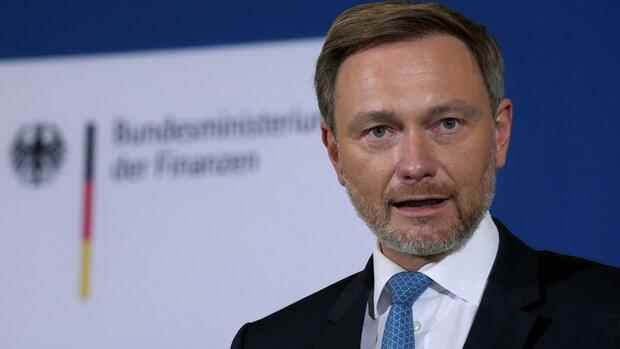According to the Federal Minister of Finance, future investments in climate protection and digitization will be made available through a billions in supplementary budget.
(Photo: Reuters)
Federal Finance Minister Christian Lindner (FDP) wants to present a supplementary budget to the Federal Cabinet in order to be able to use loan authorizations of around 60 billion euros, which were not used in 2021, as reserves in the coming years. While the measure is largely rated positively in economic circles, some lawyers, the Federal Audit Office and the Stability Advisory Board have raised constitutional concerns.
The tenor of the critics is that the financing of future expenditures through emergency loans runs counter to the intention of the constitutionally anchored debt brake, because the expenditures lack the reference to the corona crisis. Such a blanket criticism falls short, however, because there will still be expenses in the coming years that were directly caused by the pandemic. This follows from the characteristics of economic crises in general and the economic development to be expected after the corona crisis in particular.
There is empirical evidence that crises cause permanent economic and social damage. In addition, the extent of these long-term crisis losses depends on how strong the economic recovery will be in the coming years.
That is why financial policy must lay the foundation for a recovery phase lasting several years in order to avert lasting damage to the economy and society. This goal can only be achieved if the financing of crisis-related additional expenditure is secured in the coming years.
Top jobs of the day
Find the best jobs now and
be notified by email.
An example of such additional expenditure are investments that could not be made due to production bottlenecks during the crisis. Pandemic delivery bottlenecks and restrictions in the workplace have also left considerable traces in the construction industry and have resulted in investment projects that have already been planned or started in the transport and housing sectors not being carried out.
Tom Krebs is Professor of Macroeconomics at the University of Mannheim.
(Photo: Alex Kraus / Kapix)
A well-founded assessment of the investment losses caused by the crisis is necessary
These failed investments should be “made up” in the recovery phase. A reserve financing of the corresponding expenditure appears to be constitutional, as long as an economically sound assessment of the investment losses caused by the crisis is made.
Another example of additional expenditure caused by the crisis is the planned reduction in the EEG surcharge in order to dampen the rise in electricity prices. The associated expenses are clearly related to the crisis, because the global rise in electricity prices is essentially driven by factors that are directly or indirectly related to the pandemic – the corona crisis is also an energy crisis.
In addition, the rapid rise in energy prices – together with possible supply bottlenecks – threatens to slow down the economic recovery in the years to come. The reduction of the EEG surcharge is therefore an important economic policy measure to ensure a sustainable recovery.
The planned supplementary budget stipulates that the additional funds are only available for climate protection measures and measures to transform the German economy. That makes economic sense, because a good economic policy not only strengthens economic growth in the recovery phase, but also supports the economy in the transformation process. This principle of dual objectives was already taken into account in the 2020 economic stimulus package and should be a guard rail of German economic and financial policy in the future.
More: More than a billion subsidies for DAX companies – taxpayer lobby criticizes federal subsidy policy.
